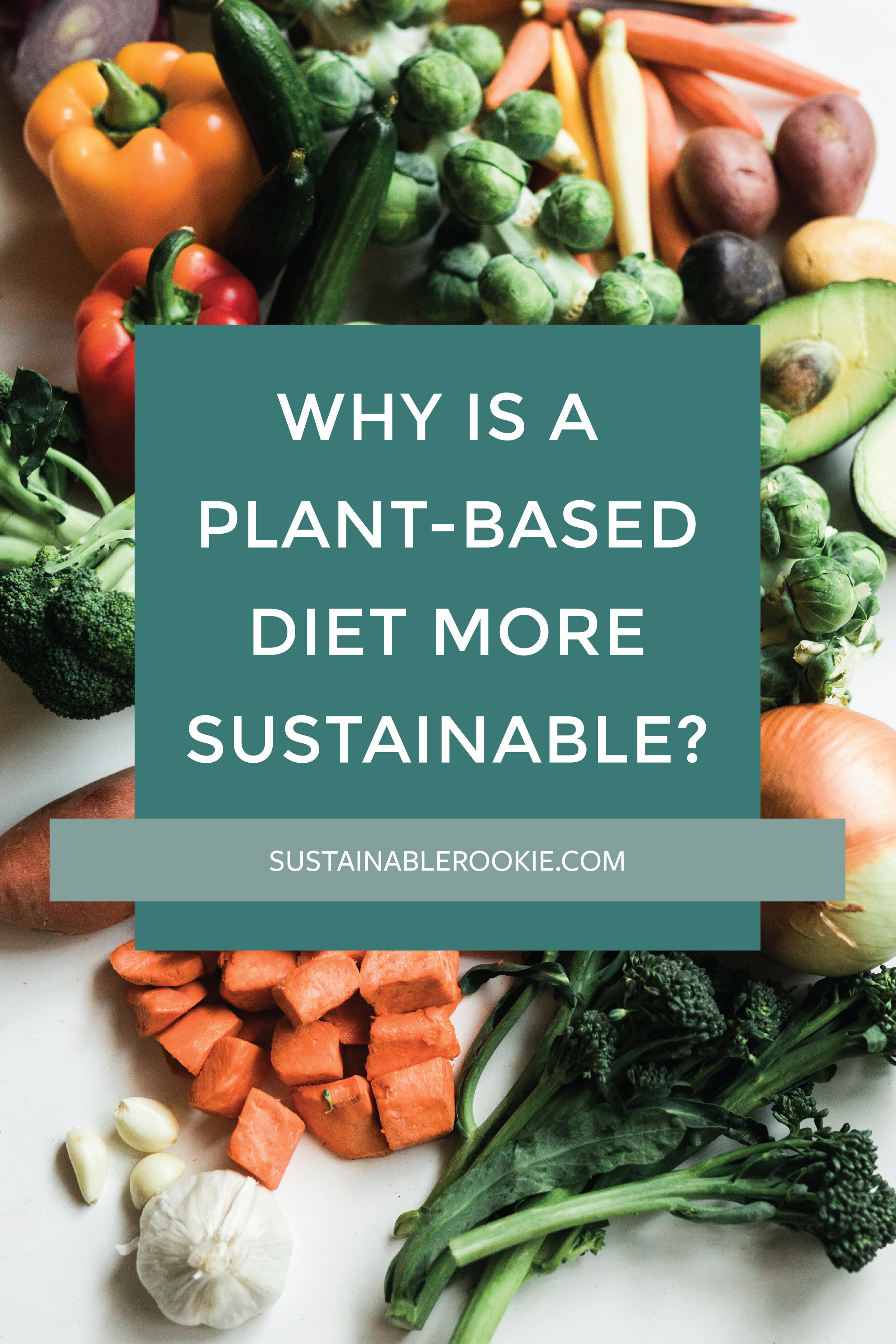10 Surprising Health Benefits of Swapping Meat for Plant Based Chicken
Wiki Article
Everything About Healthy Food: Benefits of Embracing Plant Based Alternatives
The conversation bordering plant-based diets has gotten considerable attention in recent times. Lots of individuals are checking out the prospective health and wellness advantages, nutritional advantages, and environmental influences connected with these dietary choices. As individuals become more familiar with their food's influence on well-being and sustainability, inquiries occur concerning the practicalities of taking on such a lifestyle. What certain adjustments can one expect, and how might these options improve not just individual health and wellness but likewise the world's future?Comprehending Plant-Based Diets
Although many individuals link plant-based diet regimens generally with vegetarianism or veganism, these diet regimens can encompass a variety of consuming patterns that focus on whole, minimally processed plant foods. Such diets frequently include fruits, veggies, whole grains, nuts, vegetables, and seeds, while restricting or getting rid of animal products. This adaptability enables people to tailor their dietary options according to personal choices and nutritional needs. Some might adopt a mainly plant-based diet while still sometimes consuming meat or dairy products, commonly described as a flexitarian strategy. The focus continues to be on integrating even more plant foods, which can result in a diverse range of dishes and flavors. Comprehending these numerous interpretations of plant-based eating is vital for appreciating its accessibility and charm in modern food culture.Health And Wellness Advantages of Plant-Based Foods
The wellness benefits of plant-based foods are significant, providing a nutrient density advantage that supports total well-being. Research suggests that these foods can enhance heart wellness and play a vital function in efficient weight monitoring. By incorporating more plant-based choices, people may improve their nutritional selections and advertise long-lasting health and wellness.Nutrient Thickness Benefit
Nutrient density plays an essential function in the health and wellness benefits of plant-based foods, making them a compelling option for those seeking a balanced diet. Plant-based foods, such as fruits, vegetables, legumes, nuts, and entire grains, are often abundant in essential vitamins, minerals, and anti-oxidants while being lower in calories. This high nutrient thickness permits people to take in fewer calories while still meeting their nutritional demands. In addition, these foods are packed with dietary fiber, promoting gastrointestinal health and helping in weight monitoring. By integrating nutrient-dense plant-based choices, consumers can boost their total health and wellness, support their immune systems, and lower the danger of chronic diseases. Inevitably, the nutrient thickness of plant-based foods underscores their importance in a health-conscious way of living.Heart Health And Wellness Improvement

Weight Management Assistance
Along with promoting heart wellness, a plant-based diet plan can considerably help in weight management. This nutritional technique emphasizes entire foods such as fruits, veggies, legumes, nuts, and whole grains, which are typically reduced in calories and greater in fiber contrasted to animal-based items. The high fiber content assists increase satiety, decreasing total calorie intake. Plant-based diets are commonly rich in important nutrients while reduced in undesirable fats, making it easier to preserve a healthy and balanced weight. Research shows that individuals who take on a plant-based lifestyle tend to have lower body mass indexes (BMIs) and experience more effective weight reduction compared to those who take in meat-heavy diets. Embracing plant-based alternatives is a tactical option for efficient weight management.
Nutritional Value of Plant-Based Components
Plant-based active ingredients are rich in important nutrients, offering a diverse array of vitamins, minerals, and anti-oxidants that contribute to overall health and wellness. A contrast of healthy protein sources reveals that while animal items are frequently considered as exceptional, many plant-based alternatives provide sufficient protein and other beneficial substances. Recognizing the nutritional value of these components can assist people make educated dietary choices.Necessary Nutrients in Plants
Nutrient-rich active ingredients found in plants supply a diverse range of essential vitamins and minerals that contribute considerably to overall health. These active ingredients are rich in vitamins A, C, and K, which sustain immune function, vision, and blood clotting, respectively. Additionally, plants give important minerals such as potassium, magnesium, and calcium, essential for heart health, muscular tissue feature, and bone stamina. The presence of fiber in plant-based foods help food digestion and promotes a healthy and balanced digestive tract microbiome. Antioxidants, located generously in vegetables and fruits, aid battle oxidative stress and lower inflammation. Numerous plant foods are reduced in calories yet high in nutrients, making them an outstanding selection for those seeking to keep a healthy weight while making certain optimal nutrient consumption.
Contrasting Healthy Protein Resources
Healthy protein sources vary considerably in their nutritional accounts, with plant-based active ingredients offering one-of-a-kind benefits. Unlike pet healthy proteins, which typically consist of saturated fats and cholesterol, plant healthy proteins often tend to be reduced in these harmful parts. Legumes, nuts, seeds, and entire grains are rich in vital amino acids, fiber, vitamins, and minerals. Lentils provide high healthy protein material alongside substantial iron and folate, while quinoa is a total protein, supplying all 9 important amino acids. Additionally, plant-based healthy proteins are typically accompanied by anti-oxidants and phytochemicals that support total health and wellness. The shift to plant-based healthy protein sources not just enhances dietary intake yet likewise aligns with lasting nutritional methods, reducing ecological effect and advertising long-lasting wellness benefits.Ecological Impact of Plant-Based Consuming
As awareness of environment change grows, many individuals are discovering sustainable nutritional choices that can considerably decrease their ecological footprint. Plant-based consuming has actually become a substantial contributor to lowering greenhouse gas emissions, which are mostly associated with livestock manufacturing. The cultivation of fruits, beans, grains, and vegetables commonly requires fewer sources, such as water and land, contrasted to pet farming. Additionally, plant-based diet plans can bring about decreased deforestation, as less land is required for grazing animals or expanding animal feed. By shifting towards plant-based alternatives, customers can sustain biodiversity and promote healthier environments. On the whole, embracing plant-based eating not only benefits personal health and wellness however additionally stands for a vital step toward environmental sustainability and conservation efforts.Overcoming Common Misconceptions
While numerous individuals acknowledge the benefits of a plant-based diet, several mistaken beliefs commonly hinder them from totally welcoming this way of living. An usual idea is that plant-based diet regimens do not have adequate protein; nevertheless, various plant sources, such as legumes, nuts, and tofu, provide ample healthy protein. In addition, some think that this diet plan is costly, when as a matter of fact, staples like beans, rice, and seasonal vegetables can be quite economical. One more navigate to these guys misunderstanding is that plant-based eating is extremely limiting, whereas it really provides a diverse selection of flavors and foods. Finally, several stress that a plant-based diet regimen might result in deficiencies, yet with proper preparation, people can obtain all necessary nutrients, consisting of nutrients, while taking pleasure in a wide array of scrumptious meals.Tips for Transitioning to a Plant-Based Way of living
Making the shift to a plant-based way of living can be an enhancing experience, though it frequently calls for some assistance to browse the initial adjustments. Initially, individuals are motivated to begin slowly, including more fruits, veggies, legumes, and whole grains right into their meals while minimizing meat and dairy usage. Meal preparation is vital; preparing an once a week go menu can assist reduce the modification and stop final unhealthy options. Discovering cooking methods and new dishes can additionally enhance the experience and preserve excitement about plant-based consuming. In addition, joining support groups or areas can provide motivation and share important ideas. Ultimately, remaining informed about nutrition guarantees balanced meals, stopping shortages while promoting a healthy and balanced, enjoyable plant-based way of living.Delicious Plant-Based Meal Concepts
Exploring tasty plant-based dish ideas can motivate individuals to accept an extra nutritious diet plan. One popular choice is a passionate quinoa salad, featuring cherry tomatoes, cucumber, and a tangy lemon-tahini clothing. Another favorite is a full-flavored lentil stew, packed with carrots, celery, and aromatic natural herbs, perfect for a soothing supper. For morning meal, over night oats made with almond milk, chia seeds, and covered with fresh berries give a healthy beginning to the day. Additionally, a dynamic veggie stir-fry with tofu and a selection of colorful veggies can be a quick yet satisfying dish. Ultimately, creamy avocado toast on whole-grain bread, sprinkled with spices and seeds, provides a straightforward yet savory treat. These meals showcase the range and splendor of plant-based consuming.
Regularly Asked Concerns
Can a Plant-Based Diet Plan Provide Sufficient Healthy Protein?
The concern of whether a plant-based diet can give adequate protein is usual. Many sources, including beans, nuts, seeds, and whole grains, can fulfill healthy protein needs properly, supporting a healthy and balanced diet regimen for people.Are Plant-Based Diets Ideal for Children?
The viability of plant-based diet plans for children depends upon careful preparation. Sufficient nutrients have to be ensured, consisting of proteins, minerals, and vitamins. With proper advice, such diets can sustain healthy development and growth in kids.Just how Do I Eat in restaurants on a Plant-Based Diet?
Dining out on a plant-based diet regimen involves seeking dining establishments with diverse food selections, requesting for adjustments, and discovering vegan-friendly options. Planning in advance and communicating dietary choices can boost the dining experience while preserving nutritional selections.What Are Common Irritants in Plant-Based Foods?
Typical irritants in plant-based foods consist of soy, gluten, nuts, and seeds - Gluten Free BBQ Sauce. Individuals complying with a plant-based diet regimen ought to understand these allergens and check out tags meticulously to stay clear of unfavorable responses and assure safe intakeCan Plant-Based Diets Assist With Weight Loss?
Research indicates that embracing a plant-based diet regimen may help with fat burning due to its usually reduced calorie density and higher fiber content. This combination can enhance satiety, assisting individuals handle their caloric intake successfully. Several individuals link plant-based diet regimens mostly with vegetarianism or have a peek at this site veganism, these diet regimens can incorporate a wide range of eating patterns that prioritize whole, minimally refined plant foods. Nutrient density plays an important function in the health advantages of plant-based foods, making them a compelling choice for those seeking a well balanced diet regimen. Plant-based diet plans have been shown to markedly boost heart wellness, as they often contain elements that sustain cardio function. In addition to promoting heart wellness, a plant-based diet regimen can significantly help in weight management. An usual belief is that plant-based diets do not have adequate protein; however, countless plant resources, such as vegetables, nuts, and tofu, provide adequate protein.Report this wiki page